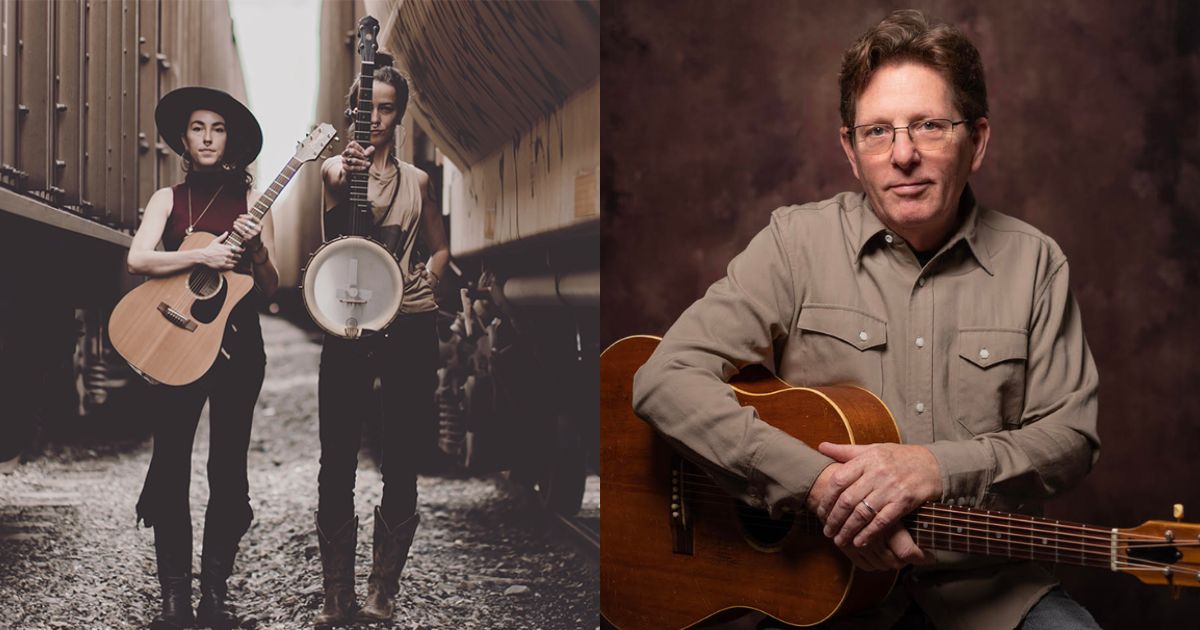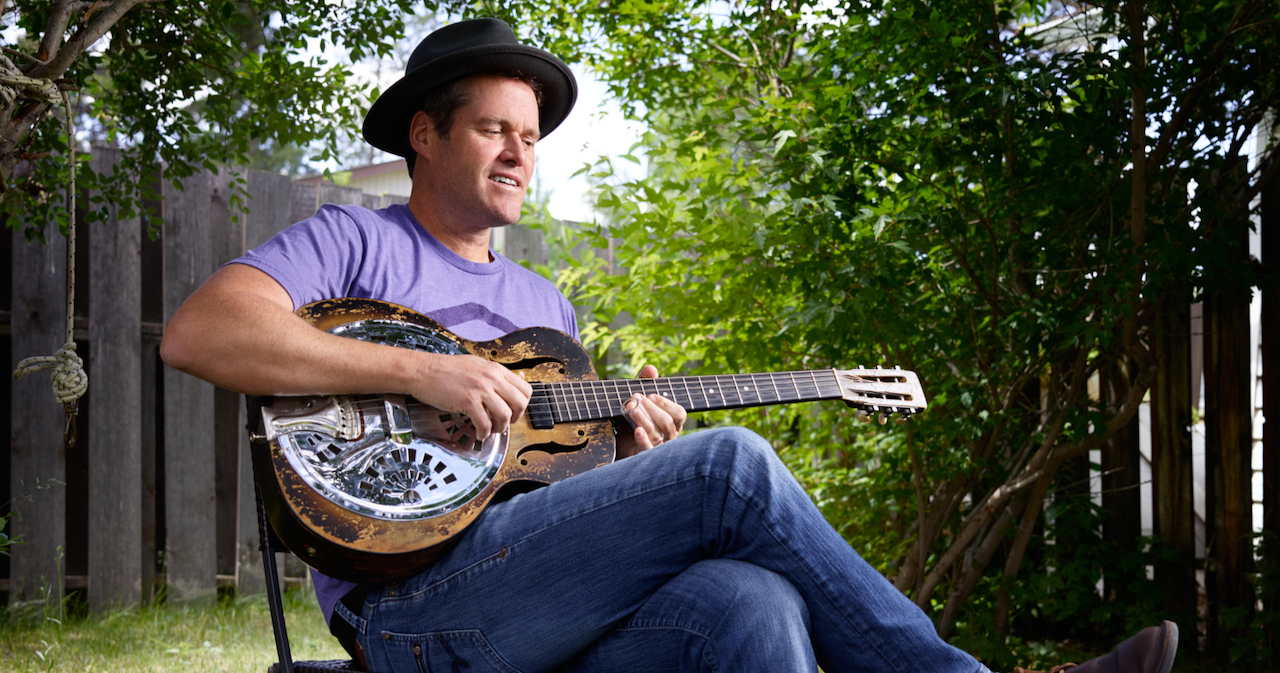What a week in music! Not only has our Artist of the Month, Kaia Kater, released her new album Strange Medicine today, but we’ve also got an absolutely incredible premiere round-up filled to bursting with brand new videos, songs, and tracks.
First, there’s transcendent sister duo Rising Appalachia with a James Blake/Bon Iver cover, “I Need a Forest Fire,” and Tim O’Brien pays tribute to iconic folk songwriter Tom Paxton with a song they co-wrote, “You Took Me In.” Plus, don’t miss new songs from Ellorie McKnight, Natalie Spears, and Nick Taylor.
We round out our list with two premieres that debuted on BGS earlier in the week, a new one from Alisa Amador’s just announced album that features Madison Cunningham and Meadow Mountain continue their SkyTheory Sessions series with “Waiting for Tomorrow.”
It’s all right here on BGS and to be perfectly honest, You Gotta Hear This!
Rising Appalachia, “I Need a Forest Fire”
Artist: Rising Appalachia
Hometown: Asheville, North Carolina
Song: “I Need a Forest Fire”
Album: Folk and Anchor
Release Date: May 17, 2024
In Their Words: “‘I Need A Forest Fire,’ is our interpretation of a rich and righteous James Blake track. We have been big fans of his artistry and aural weavings for many years and wanted to do a folk rendition of this striking song. The texture of its sounds stretch far and wide in atmospheric rhythms as well as the lyrics and it took some deep digging to conceptualize what Blake was perhaps trying to say… Our interpretation is this:
“We live in a time of rapidly destructive (and so often man-made) wildfires in many parts of this planet. Singing a song that says ‘we need a wildfire’ felt cautionary, but enticing, as we explored the many metaphors that ‘forest fire’ could represent. We came to believe it is about the burning of the ego, the take down of destructive habits and destructive relationships, even destructive sides of self. In a time where everyone is on one side of the coin or the other, in a highly polarized nation, a burning symbolizes a great reset. A death and rebirth cycle. We hope you enjoy our take on this track as much as we have enjoyed stretching into its different sounds.” – Rising Appalachia
Tim O’Brien, “You Took Me In” (from Bluegrass Sings Tom Paxton)
Artist: Tim O’Brien
Song: “You Took Me In”
Album: Bluegrass Sings Paxton
Release Date: May 17, 2024 (single)
Label: Mountain Home Music Company
In Their Words: “Jan and I came of age listening to and then singing Paxton songs before we ever knew his name. We both learned ‘Last Thing on My Mind’ and sang it around campfires before we met each other. So like a lot of folks, we kinda have Paxton in our musical DNA.
“Tom has been friendly and supportive over the years and in recent years often expressed his desire to write together. With this project, push came to shove and Jan and I wrote ‘You Took Me In’ with Tom on our second session. I had the lyric idea and imagined some Earl Scruggs-style gospel guitar as backing. We had the song in about an hour. When we were done I asked Tom how many songs he’d written that week and he said, ‘I’ve written four songs today!’
“Paxton’s early songs were the kind that sorta begged audiences to sing along. This one reaches in that direction. I love how simple and direct it is. Since that day, the three of us have written another 15 songs, all of which are daring Jan and I to record them, so stay tuned. Songs are like little puzzles that a certain strata of musicians have fun solving. We’re just honored to sit beside Tom, even if only virtually, as he does his masterful thing. He knows to let the song happen. He can pull a lyric from an instrumental riff, he improvises easily, and you can just trust him. When he says to go higher with the melody or go to the four chord, we’re never afraid to follow.” – Tim O’Brien
Track Credits:
Tim O’Brien – Guitar, lead vocal
Jan Fabricius – Mandolin, harmony vocal
Shad Cobb – Fiddle, harmony vocal
Mike Bub – Upright bass
Ellorie McKnight, “Whitepass”
Artist: Ellorie McKnight
Hometown: Whitehorse, Yukon
Song: “Whitepass”
Album: Equinox
Release Date: May 3, 2024
In Their Words: “White Pass is a magical, remote mountainous area connecting Yukon’s southwest with Alaska. If you’re driving from Whitehorse, YT to Skagway, AK, you pass through mountains and boreal forest until you reach the Canadian border crossing, after which the road winds through 25km of treeless, rugged alpine terrain before dropping down towards the ocean, where you then drive through the US border and then into the coastal ecosystem of Skagway. There is no reception on this stretch of road and no sign of humans except for the road and the border patrol buildings.
“This part of the world is like a dream in summer: the sound of creeks is loud and the wild blueberries are everywhere. In the winter, the area is mystical no matter the weather, with meters of snow blanketing the valleys and mountains. I was making the trip from Whitehorse to Skagway in the middle of winter one year, late at night, to visit a friend. There was a raging blizzard and snow drifts forming on the road, it was hard to see more than a few feet ahead and the going was slow. I pulled over to catch my breath and stepped outside. The wind was steady and the sharp snowflakes bit into my cheeks. I looked up and was surprised when I saw a waxing moon in a clear night sky just above the fog of the ground blizzard. It was a moment of awe, of wonder, of feeling so intertwined with the earth and yet also so small. The song ‘Whitepass’ tries to capture the many similar moments I’ve felt spending time in this stunning part of the world.” – Ellorie McKnight
Track Credits:
Ellorie McKnight – Guitar and vocals
Brigitte Desjardins – Drums
Jeff Dineley – Upright bass
Ryan McNally – Pedal steel and harmonies
Kieran Poile – Fiddle
Video Credit: Midnight Light Media
Natalie Spears, “Hymn Of Wild Things”
Artist: Natalie Spears
Hometown: Carbondale, Colorado
Song: “Hymn Of Wild Things”
Album: Hymn Of Wild Things
Release Date: May 17, 2024 (single); June 28, 2024 (album)
Label: SleeLee
In Their Words: “Early one chilly autumn morning, I awoke to the chortling cries of Sandhill Cranes echoing through our town. Their sound is one like no other, awkward, beautiful, and haunting. It is a sound that we only hear a few times a year as they journey along their migratory path towards warmer shores. Whenever I hear them, I drop everything I’m doing and try to find them. On that particular morning, I got up with my sweet pup and followed their cries to a local nature park near my home. The clouds were sunk low in the valley and although we could hear them close by, we still couldn’t see them. We sat quietly waiting and eventually the sun’s heat lifted the clouds revealing the ghostly shapes of two beautiful Sandhill Cranes. The words to this song began to take shape in my mind and it was then that Hymn Of Wild Things was born.” – Natalie Spears
Track Credits:
Written by Natalie Spears (BMI)
Produced by Jayme Stone
Natalie Spears – Voice
Christine Bougie – Guitars, lap steel
Pat Keen – Bass
Jayme Stone – Synth, drum programming
Nick Taylor, “Dogs”
Artist: Nick Taylor
Hometown: Austin, Texas
Song: “Dogs”
Album: Not Alone
Release Date: June 21, 2024
In Their Words: “As one of the earliest compositions I laid down for the album, it’s personal and cathartic, a reflection of the anxiety that’s been an ongoing part of my persona. Sometimes it gets particularly overwhelming and that’s how this song was born. It speaks to uncertainty — how it manifests, how it’s perceived by others, and how it affects those around us. When we went into the studio to record it, it just came alive. It was important to me to get it out into the world. It’s the song that inspired the album title, Not Alone, but more importantly, it explores topics that society tends to dismiss — especially when it comes to matters having to do with mental health, insecurity and stability. It calls for understanding and in that regard, my hope is that it will help anyone dealing with a similar situation feel less alone.
“‘Dogs’ is such an emotional song, almost a confessional, that we wanted to make sure the video felt personal. Shooting just one scene created a space where the lyrics were being recited directly to the audience and I think that format really works well with the song. Huge thanks to Will and the team for their vision and direction.” – Nick Taylor
Track Credits:
Written by Nicholas Taylor Wimberg
Nick Taylor – Lead vocals
Wayne Killius – Drums
Dave Francis – Bass
David Flint – Electric and acoustic guitars
Chris Nole – Piano/keys
Video Credits:
Produced by Charlotte Avenue Entertainment
Directed by William Gawley
Shot by Austin Boylen and Dominick Sotis
Meadow Mountain, “Waiting for Tomorrow” (SkyTheory Sessions)
Artist: Meadow Mountain
Hometown: Denver, Colorado
Song: “Waiting for Tomorrow”
Album: June Nights
Release Date: May 13, 2024 (single)
In Their Words: “This song attempts to answer the question, ‘What if, instead of starting the band Foo Fighters, Dave Grohl had picked up a mandolin and spent a year exclusively listening to Alison Krauss & Union Station?’ I guess I was doing a lot of thinking and writing about time – the great healer, but also that which brings an end to all things. And then a new beginning. This is a song about time, and hope.” – Jack Dunlevie
Alisa Amador, “Heartless Author” (feat. Madison Cunningham)
Artist: Alisa Amador
Hometown: Boston, Massachusetts
Song: “Heartless Author” (featuring Madison Cunningham)
Album: Multitudes
Release Date: June 7, 2024
Label: Thirty Tigers
In Their Words: “I love this song. I love it because it acknowledges all of the uncertainties and pain of life and it shines compassion on all of it. ‘It’s okay not to know.’ It was such a joy to sing this one with Madison Cunningham. She learned it right then and there in the studio, and her voice says so much.” – Alisa Amador
Photo Credit: Rising Appalachia by Syd Woodward; Tim O’Brien by Scott Simontacchi

